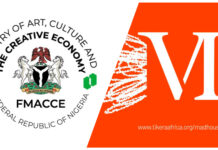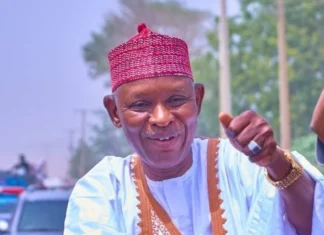Chris Otaigbe
In their bid to arrest the increasing spate of Gender based violence in Nigeria, wife of Bauchi State Governor, Dr Aisha Mohammed and the Attorney-General of the Federation, Abubakar Malami, have set committees, just as the World Bank has shown its concern through an expository report.
Riding on the Violence Against Persons Prohibition Act (VAPP) in the state, Wife of Bauchi State Governor, Dr Aisha Mohammed, has vowed to work to ensure that victims of Sexual and Gender Based Violence (SGBV) in the state are protected and get justice. NAN reports.
She gave the assurance while inaugurating a 17-man SGBV Committee in the state on Saturday. According to her, the mandate of the committee, among others, was to provide victims with free medicals and ensure that they were guarded toward getting justice, adding that the committee would also receive and report cases of all forms of violence and would pursue such cases until victims get required justice.
Drawn from government Ministries, Departments and Agencies, professional groups and Civil Society Organizations, the governor’s wife said the decision to constitute the SGBV Committee was borne out of the desire to protect lives of citizens.
She commended the state government and the legislature for enacting the Violence Against Persons Prohibition Act (VAPP) in the state.
Suing for increased enlightenment campaigns among communities with a view to addressing the menace of SGBV, she distributed 450 different equipment including laundry items to women groups.
The Chairperson of the committee, Mrs Easter Ahmed, solicited the support of the public toward reporting SGBV cases, adding that toll free telephone numbers would be provided to the public for effective communication and report of cases to the committee.
In another development, the governor’s wife donated N1.2m to settle the medical bills of seven patients, and a further donation of 500 sanitary pads to improve personal hygiene among girls and women in the state.
Her initiative may be following in the footstep of the minister of justice and attorney-general of the Federation (AGF), Abubakar Malami (SAN), who said the prevalence of sexual and gender-based violence (SGBV) is having both social and economic impacts on Nigeria, negatively.
The minister, who made this comment on July 23, 2020 during his inauguration of an Inter-ministerial Management Committee on the Eradication of Sexual and Gender-based Violence in Nigeria, said the committee is mandated to conduct a review of all existing laws and policy instruments touching on offences of rape, child defilement and gender-based violence in the country.
Made up of representatives of several ministries and agencies including the National Human Rights Commission (NHRC), the Committee will be Federal Government’s instituted body given the task of coordinating government action in response to tackling SGBV cases in the country.
‘’The excruciating impact of SGBV is not limited to only victims and their families, but also involves devastating social and economic costs to our nation. The need for concrete and urgent actions to combat this problem can, therefore, not be overstated,” Malami said.
In furtherance of its primary responsibility of defending constitutional rights of citizens, according to Malami, the Justice Ministry has engaged relevant government ministries, agencies and departments to ensure an adequate and sustainable response to the crisis.
According to the World Bank, in its 2019 Report on Gender Based Violence, titled: Gender Based Violence: An Analysis of the Implications for the Nigeria For Women Project, Gender-based violence, or GBV, is one of the most oppressive forms of gender inequality, posing a fundamental barrier to the equal participation of women and men in social, economic, and political spheres.
As it noted in “Voice and Agency: Empowering Women and Girls for Shared Prosperity,” the World Bank’s Inter Agency Standing Committee defines GBV as ‘an umbrella term for any harmful act that is perpetrated against a person’s will and that is based on socially ascribed (gender) differences between males and females.’
GBV affects both men and women, but women are much more vulnerable because violence reflects and reinforces existing gender inequalities. Due to the high prevalence of female survivors, some organizations, such as UN Women and the U.K. Department for International Development, use the terms ‘violence against women’ and ‘violence against women and girls’ to describe the focus of their GBV-related work.
In the World Bank Report, United Nations defines these terms as ‘any act of gender-based violence that results in, or is likely to result in, physical, sexual, or psychological harm or suffering to women, including threats of such acts, coercion, or arbitrary deprivation of liberty, whether occurring in public or in private life.’
Affirming that the ugly phenomenon spans individual acts to institutional and in some cases, cultural practice, World Bank stated that GBV includes intimate partner violence, non-partner sexual assault, female genital mutilation, sexual exploitation and abuse, child abuse, female infanticide, and child marriage. Such violence, the Report reminds, impedes gender equality and the achievement of a range of development outcomes.
Agreeing with Nigeria’s Attorney General’s position that GBV affects the economy, the Report states that experiencing violence precludes women from contributing to or benefiting from development initiatives by limiting their choices and ability to act.
In the Report, the global apex bank advised that deprivation of women resulting from violence should be of central concern to governments and to societies as an intrinsic human rights issue and because of the epidemic’s negative impact on economic growth and poverty reduction.
“Exposure to intimate partner violence is linked with a multitude of adverse physical health outcomes, including acute injuries, chronic pain, gastrointestinal illness, gynaecological problems, depression, and substance abuse. The economic costs of GBV include expenditures on service provision, foregone income for women and their families, decreased productivity, and negative impacts on human capital formation, which are burdensome to developing economies. According to a recent World Bank Report, the estimated costs of intimate partner violence across five countries is 1.2–3.7 percent of GDP, the same as what most governments spend on primary education,” The Report stated.
Like in other jurisdictions, GBV remains a challenge that significantly constrains women’s autonomy and opportunities, in Nigeria. In its 2013 Report, Nigeria Demographic Health Survey (NDHS) indicates that 28 percent of women in Nigeria aged 15–49 have experienced some form of physical or sexual violence; 11 percent had experienced physical violence within the 12 months prior to the survey.
According to the survey, almost 45% of the women who had experienced violence never sought help or told anyone about the incident. The harmful practices of child marriage and female genital mutilation are also prevalent across the country; and trafficking in women and children is endemic in Edo State. Conflict in Nigeria’s North East geopolitical zone has further contributed to a steep rise in violence targeted against women and children by Boko Haram.
Consequently, the Report stressed, women are increasingly being used as instruments of war, for example, as suicide bombers or through forced marriage, which then makes them more vulnerable to stigmatization and rejection by their families and communities.
In order to tackle the menace, the World Bank decided to finance the Nigeria For Women Project (NFWP), a US$100 million-funded initiative, implemented by the Federal Ministry of Women Affairs and Social Development (FMWASD) aimed at improving the livelihoods of women in targeted areas of Nigeria.
It comprises four components, which include Building social capital, a component that seeks to build social capital by galvanizing women to become members of Women’s Affinity Groups (WAGs) and by strengthening new and existing groups, to serve as institutional platforms for Nigerian women.
Its subcomponents involve influencing social norms, creation, and strengthening of WAGs.
Another component is Livelihoods program, which supports economically active women in WAGS by providing livelihood grants and holistic and targeted skills trainings. Its subcomponents seek to support individual livelihoods and livelihood of collectives.
There is also the aspect of Innovations and partnerships, which aims to use Nigeria’s talent pool to identify and deploy innovations that can transform the social and livelihood outcomes of women and improve project delivery, including monitoring and evaluation.
Through Project management, monitoring and evaluation, and learning, the Report stated that this component will aim to uplift the socioeconomic status of women by advancing policy dialogue; strengthening technical and implementation capacities; and improving coordination among implementing partners at the federal, state, and local government levels through the deployment of highly qualified technical professionals.
Since the project’s strong focus on economic empowerment of women, FMWASD and the World Bank jointly commissioned an analysis of the prevalence and project-related risks of GBV, using field analysis across three Nigerian states. “The study assesses the risks, defines linkages between women’s economic empowerment and GBV risk reduction, and offers targeted recommendations to mitigate risks in project design and implementation. This Report is informed by desk and field research in addition to detailed information gathered by the task team from the federal and state governments and from other stakeholders during the project preparation phase. The selected states for field research are from three geopolitical zones and represent a variety of sociocultural contexts,” The Report stated.
One of the project’s case studies, Katsina State, is rural and its inhabitants are primarily Muslim, monoethnic, and monolingual, with the majority of the population Hausa or Fulani, while Edo, second of the three cases, is semi-urban and urban, with a population of mostly Christian and migrant communities that speak Edo.
Third of the States under the project’s study, Taraba is a mix of Christian, Muslim, and traditional worshipper (Animist) communities affected by communal conflict and displacement from North East Nigeria.
The Report revealed that Edo and Taraba are among the six states covered under the first phase of NFWP, which also includes the states of Abia, Niger, Kebbi, and Ogun.
“This study is grounded in comprehensive qualitative research, including a desk review and the collection of primary data gathered from the field. The prevalence of GBV in project areas is determined by using information gleaned from nationally representative surveys: the “Nigeria Demographic and Health Survey 2013” (NPC and ICF International 2014); the “Nigeria— Multiple Indicator Cluster Survey 2016–2017” (UNICEF 2018); and the 2014 “Violence Against Children Survey,” funded by the United Nations Children’s Fund (UNICEF 2014),” The Report directed.
The Report dwelt on assessment of community-level perceptions about and risk factors for GBV based on in-depth qualitative research in the three selected Nigerian states, outlining measures to prevent and respond to violence against women and girls in rural and semi-urban contexts using a survivor-centered approach.
Causes of violence against women and girls are multifaceted and they include factors at the individual, relationship, community, and societal levels. This widely acknowledged social ecological model recognizes that the root cause of GBV is gender inequality, namely the societal-level factor of unequal distribution of power and resources between men and women.
“Gender-based discrimination and inequality can be expressed through different mechanisms, including discriminatory laws, unequal access to political and economic power, socially constructed norms of masculinity and femininity, and gender roles and stereotypes. In addition to the root causes of GBV, other factors operating at the individual and relationship levels can affect the probability that a woman or girl will experience violence,” Stated the Report.
These factors, according to the Report, include age, education level, alcohol or drug use, poverty, acceptance of violence, unemployment, and depression, among many others.
“This report uses the social ecological model as the basis to analyze prevalent GBV risks in Nigeria. It first describes the legislative and policy level frameworks associated with violence against women and girls as well as their implementation at the national and subnational levels. It then provides a detailed analysis of specific social norms that have created acceptance for or at least a lack of condemnation of GBV at the community level,” The Report stated.
In its Policy and Legislative Frameworks, the Nigerian plural legal system has statutory and sharia law in the northern zones coexisting with customary law in rural areas. The simultaneous application of this three-tier system, the World Bank noted, creates varied degrees of protection for the rights of women and children.
In its report, the Bank acknowledges Nigeria’s federalist political system, where both federal and state governments have the prerogative to pass laws affecting women and children. A state must pass (domesticate) a law for it to be legally binding in that state, which is what the Bauchi State House of Assembly did in VAPP.
Illustrating Nigeria’s legal commitment to the war against GBV in the country, the Report noted that the federal government of Nigeria has ratified multiple international laws and conventions to address the historical discrimination and marginalization of women and girls, including GBV.
“Examples include: the Child Rights Act of 2003, which provides for detailed protection of a girl child until age 18, seeks to end forced labour and child marriages, and is aimed at ensuring health services for pregnant women; the Convention on the Elimination of All Forms of Discrimination Against Women (CEDAW), ratified in June 1985; the Protocol to the African Charter on Human and Peoples’ Rights on the Rights of Women in Africa (Maputo Protocol), ratified December 16, 2004; and the Violence Against Persons Prohibition Act, which was finally passed in 2015, more than 10 years after it was first presented to the national assembly,” The Report outlined.











